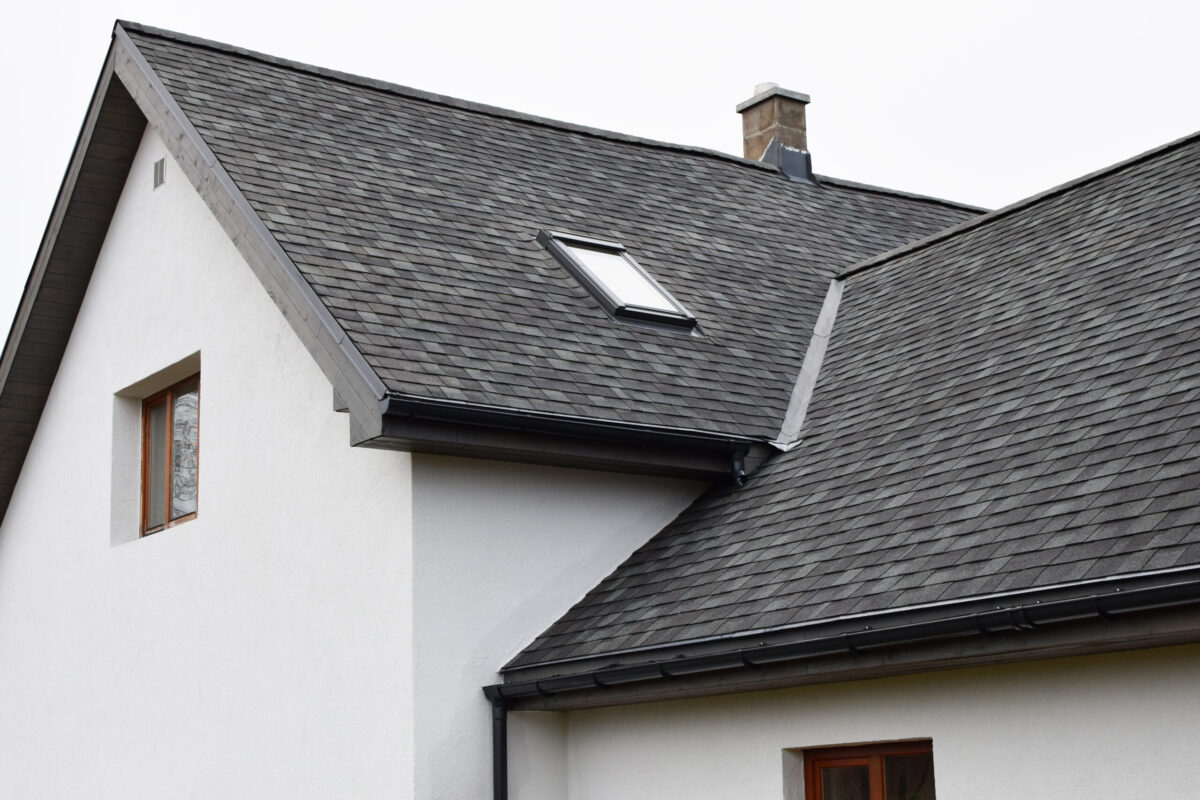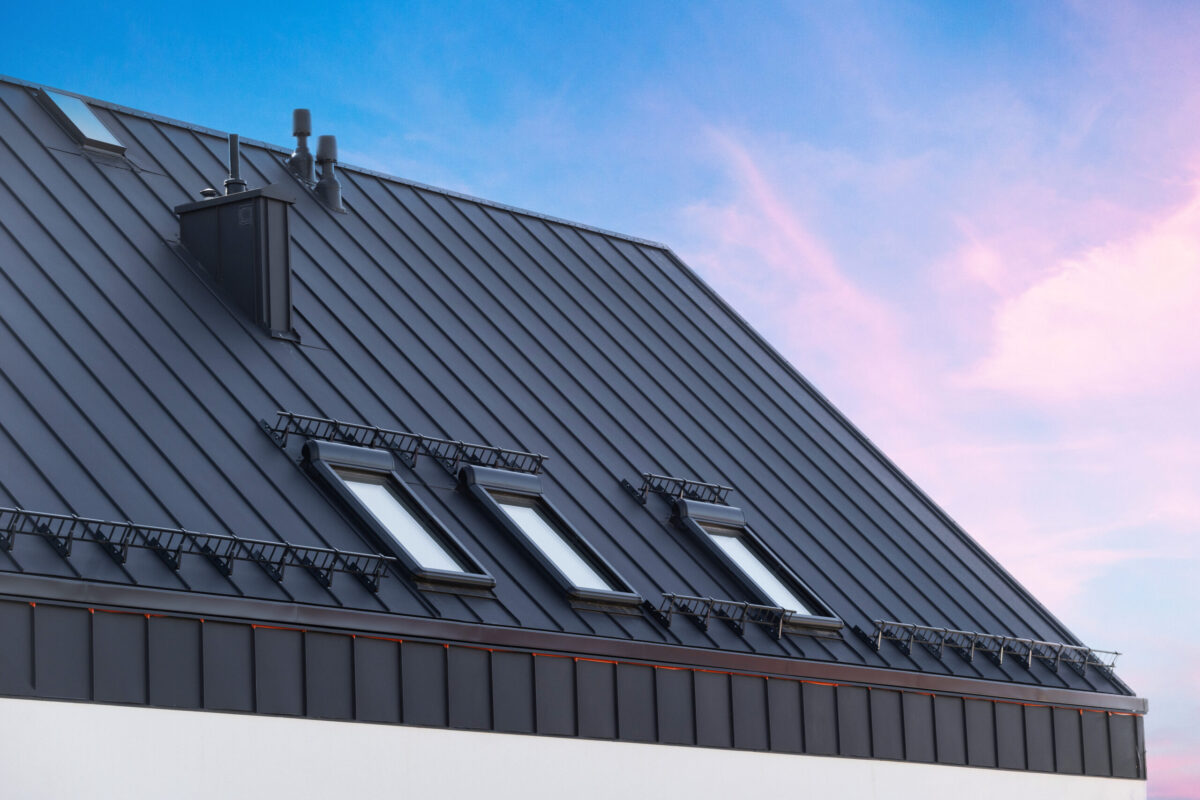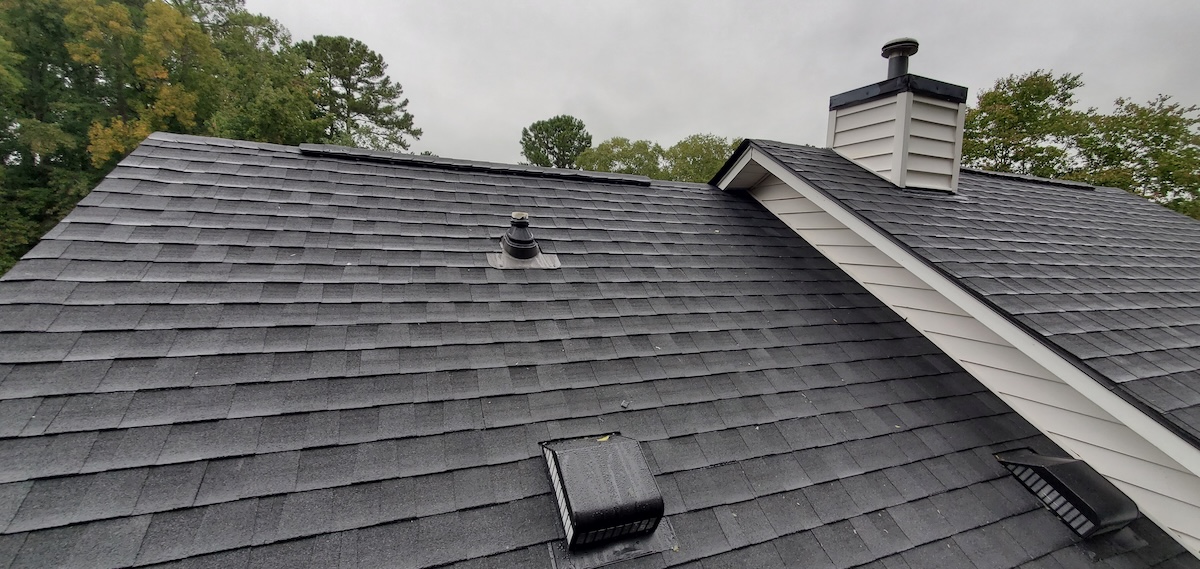When planning a roof replacement or new installation, one of the biggest decisions homeowners face is choosing between metal and asphalt shingles. The cost of metal roof vs shingle can vary greatly depending on materials, labor, lifespan, and long-term performance. While asphalt shingles remain the most common roofing material across Indiana neighborhoods, metal roofs are gaining popularity for their strength, longevity, and sleek appearance. Understanding how these two options compare helps you make a decision that balances upfront investment, maintenance, and long-term value. If you’re considering an upgrade, it’s worth exploring professional roofing services to ensure your installation is done with precision and expertise.
Here’s what you’ll learn in this guide:
- How metal and shingle roofs compare in cost, lifespan, and maintenance
- The key advantages and drawbacks of each roofing type
- Factors that affect total installation and long-term costs
- Which roof style delivers the best value for homeowners in your area
Why Comparing Roofing Costs Matters

Your roof isn’t just a layer of protection—it’s a major home investment that affects comfort, energy efficiency, and resale value. Comparing metal and shingle roofing helps homeowners in Fort Wayne and surrounding areas make smart, long-term decisions.
- Cost Awareness: Understanding initial and lifetime expenses helps with accurate budgeting.
- Durability Insight: Different materials perform better in different climates.
- Energy Savings: Roof materials can significantly affect heating and cooling bills.
- Aesthetic Choice: The right material enhances your home’s character and curb appeal.
- Resale Advantage: A higher-quality roof can improve property value and buyer confidence.
7 Cost Factors of Metal Roof vs Shingle
While shingles are often seen as the budget-friendly choice, metal roofing’s durability and efficiency can make it more cost-effective over time. Let’s break down the seven major areas of comparison to see how each option stacks up.
1. Material Cost
The most visible cost difference starts with materials.
- Asphalt Shingles: Typically $3.50–$5.50 per square foot installed, depending on quality and style. Architectural shingles may reach $7 per square foot.
- Metal Roofs: Range from $8.50–$14 per square foot, depending on type (steel, aluminum, zinc, or copper). Premium metals like copper can exceed $20 per square foot.
While metal is more expensive upfront, it can last two to three times longer than shingles.
2. Installation and Labor
Metal roofs require more specialized installation, increasing labor costs.
- Asphalt shingle installation generally takes one to three days.
- Metal roofing can take three to five days due to custom cutting, fasteners, and interlocking panels.
This additional labor adds cost, but professional installation ensures longer performance and fewer future issues.
3. Lifespan and Durability
This is where metal roofs show clear superiority.
- Shingles: Average lifespan of 20–30 years. Vulnerable to cracking, curling, and wind damage.
- Metal: Lasts 40–70 years with minimal maintenance and superior resistance to fire, hail, and high winds.
Over several decades, metal often becomes the more cost-effective investment simply by lasting longer.
4. Maintenance and Repairs
Maintenance is one of the biggest long-term cost differences between these two roofing materials.
- Shingle roofs may require periodic patching, replacing loose shingles, and cleaning debris.
- Metal roofs typically only need routine inspections and occasional tightening of fasteners.
Though individual shingle repairs are inexpensive, cumulative maintenance adds up. Metal roofing’s low upkeep is ideal for busy homeowners seeking reliability.
5. Energy Efficiency
Energy performance plays a major role in total ownership cost.
- Shingles: Absorb heat, especially dark colors, which can increase cooling bills in summer.
- Metal: Reflects sunlight, keeping attics cooler and reducing HVAC load.
In regions like Fort Wayne and surrounding areas, homeowners with metal roofs often notice significant savings on summer energy bills.
6. Aesthetic Options

Both metal and shingles offer design flexibility, but the differences are worth noting.
- Shingles: Come in a variety of colors, patterns, and styles to mimic slate or wood shake.
- Metal: Offers contemporary looks with options like standing seam, corrugated panels, and stamped designs that replicate tile or shingles.
While shingles blend seamlessly with traditional homes, metal roofs stand out with modern architectural appeal and color longevity due to advanced coatings.
7. Environmental Impact
Sustainability is becoming an increasingly important factor for homeowners.
- Shingles: Made mostly from petroleum-based materials and often end up in landfills after replacement.
- Metal: Frequently made from recycled steel or aluminum and is 100% recyclable at the end of its lifespan.
For eco-conscious homeowners, metal roofing provides a greener, longer-lasting solution with less waste over time.
The Pros and Cons of Each Roofing Type
Both asphalt shingles and metal roofs have advantages that appeal to different priorities. Here’s a closer look at how they perform beyond cost.
Asphalt Shingles
Pros:
- Lower initial installation cost
- Easier and faster to install
- Wide variety of textures and colors
- Easier repairs for minor damage
Cons:
- Shorter lifespan and higher maintenance needs
- Can lose granules and deteriorate under UV exposure
- Less resistant to hail and wind damage
- Retains heat in warm weather
Metal Roofs
Pros:
- Exceptional durability and longevity
- Low maintenance requirements
- Excellent energy efficiency and fire resistance
- Environmentally friendly and recyclable
- Modern, customizable designs
Cons:
- Higher upfront investment
- Requires skilled installers for proper fitting
- Can be noisy in heavy rain without insulation
Long-Term Value and ROI Comparison
When you look beyond upfront costs, metal roofing often provides better long-term value. Homeowners in Fort Wayne and surrounding areas can benefit from the following advantages when choosing metal over shingles.
| Category | Asphalt Shingle Roof | Metal Roof |
| Average Lifespan | 20–30 years | 40–70 years |
| Installed Cost (per sq. ft.) | $3.50–$7.00 | $8.50–$14.00 |
| Maintenance Level | Moderate | Low |
| Energy Efficiency | Average | Excellent |
| Resale Value | Good | Excellent |
| Wind & Impact Resistance | Moderate | High |
| Recyclability | Limited | 100% recyclable |
Return on Investment
While metal roofs can cost nearly twice as much to install, they typically last two to three times longer. Combined with lower energy costs and reduced maintenance, the overall return often surpasses that of shingle roofs.
Climate and Insurance Benefits
Metal roofs perform exceptionally well under Indiana’s diverse weather conditions. They handle ice, wind, and hail better than asphalt, often qualifying homeowners for insurance discounts due to fire and impact resistance.
Factors That Influence Overall Roofing Cost
Even within each material category, several variables affect your final project cost.
- Roof Size and Slope: Steeper or larger roofs require more material and labor.
- Underlayment and Ventilation: Essential for moisture control and energy efficiency.
- Tear-Off vs. Overlay: Removing old roofing adds labor costs, while overlaying may save time and money.
- Warranty Coverage: Premium warranties can increase upfront costs but add long-term protection.
- Design Complexity: Roofs with valleys, dormers, or skylights require more customization and precision.
Choosing the Right Roof for Your Home

The best roof depends on your goals, budget, and how long you plan to stay in your home. Asphalt shingles are ideal for short- to mid-term affordability, while metal roofs offer unmatched longevity and value for homeowners planning to stay long-term.
In Fort Wayne and surrounding areas, homeowners often choose metal for its ability to withstand local weather extremes while keeping energy bills manageable year-round. Shingles remain a practical option for those seeking classic curb appeal with a lower upfront price.
A qualified roofing contractor can inspect your home, measure your attic ventilation, and provide a tailored estimate. The right professional ensures your roof performs efficiently, meets warranty requirements, and enhances your home’s energy performance.
Ready to Compare Roofing Options for Your Home?
Whether you prefer the affordability of shingles or the strength and longevity of metal, both materials can protect your home for years when properly installed. The key is finding the right balance between budget, performance, and design preference. To learn more about materials, warranties, and installation options, contact us today to schedule a professional consultation and receive a detailed estimate for your next roofing project.
